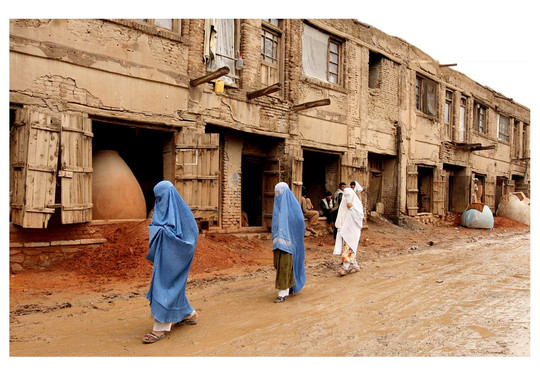A sobering statistic that should jolt anyone with a conscience: less than 100 of Afghanistan’s 700 women journalists are still working, according to a survey by the Centre for the Protection of Afghan Women Journalists (CPAWJ). A Time magazine story puts the number of women journalists currently working in Kabul as less than 40. Following the takeover of Afghanistan by the Taliban in mid-August, a majority of the more than 1000 female media staff were forced to stop working, due to direct threats and intimidation. It was an abrupt end to what seemed like an increasingly gender diverse media – a 2020 survey found more than 1700 women working in the media in three provinces: Kabul, Herat and Balkh.
Despite assurances to the contrary, the Taliban’s approach to media rights and women’s rights appears far removed from its rhetoric and closer to the orthodoxy of its regime in the 1990s. Journalists have been beaten, tortured and prevented from reporting in brutal ways. Women journalists reported being barred from work, threatened and intimidated, their radio stations destroyed and families threatened. Many fled from the provinces to safer locations in Kabul and even outside the country.
Watching with alarm from the neighbourhood, the Network of Women in Media, India (NWMI) immediately issued a statement of solidarity with Afghan women journalists and went on to respond to one of the primary needs expressed by women who had been thrown out of their jobs. Funds were required for basic necessities, visas, flights, accommodation and even to survive. Many women journalists are the sole earners of their families, supporting their communities in these times of distress. They are taking the lead in seeking support and building networks of solidarity to sustain them during these bleak times.
Under the banner “Journalists for Afghanistan”, the NWMI in partnership with the Media Safety & Solidarity Fund (MSSF), launching a fundraiser on 8 September from sales of stunning photographs from the Associated Press (AP) which generously allowed the use of images from its Afghanistan coverage over two decades. The collection brought together photographs by some of AP’s bravest and most talented visual journalists, documenting daily lives in Afghanistan. The fundraiser said, “At a time of unimaginable societal and political upheaval in Afghanistan, and even as its people face an uncertain and frightening future, these images challenge us to reflect on the power of resilience and courage in tumultuous times.”
By the end of September, WACC and the Global Alliance on Media and Gender (GAMAG) also launched a fundraising campaign to support Afghan women journalists. “The space that women journalists created for the voices of women and marginalised groups to be heard in the media is at risk of shutting down completely,” said WACC and GAMAG. “In August, an estimated 95% of women journalists have quit or been forced out of their jobs. Those left standing are reporting while still trying to flee.”
Within three weeks, the NWMI fundraiser reached USD 100,000. The overwhelming response is testimony to the global concern towards the media in Afghanistan, particularly women journalists. One contributor said, “Thank you for allowing me to put my concern into action”. Others said, “I feel a little less helpless about the situation in Afghanistan”. Coverage in the Indian media, as well as international media like The Guardian and Global News Canada, generated a surge of support for the beleaguered journalists of Afghanistan, sending the message that they were not alone.
Laxmi Murthy is a journalist based in India. She is a member of the NWMI, a network of media professionals across India.

